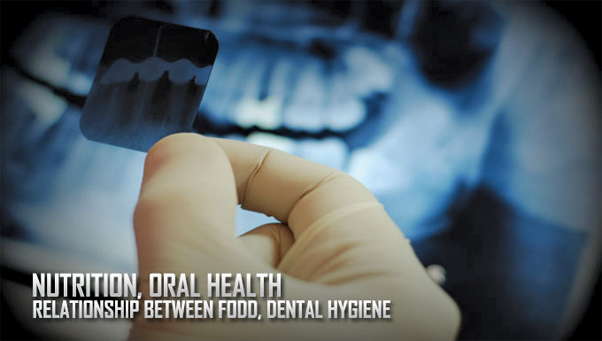CANNON AIR FORCE BASE, N.M. — It is a given that good nutrition is important for general health and wellbeing. In today’s day and age, with the abundance of science and dietary research available to us, we are more conscience about what we put into our bodies than ever before.
Most people with a basic knowledge of oral hygiene know that sugar is bad for their teeth. While this is certainly true, the relationship between food and your oral health is a little more complex.
For years, cavities and gum disease has been a nuisance for all. There is evidence that our earliest ancestors had to endure these painful conditions throughout the course of their lives, as there was no way yet to properly treat them beyond extraction.
Dentistry itself has been around for centuries. Everything from jewel fillings to gold bridges shows that many early efforts were quite reliable and effective for their time. Over the years, there has been a steady rise in innovation: silver fillings (amalgams), root canal therapy, crowns, implants, digital radiography and laser dentistry.
So if time indicates we have grown wiser, why then would oral health be getting worse? This is due to the introduction of refined grains and sugars in the human diet—in other words, processed food.
The bacteria in our mouths feed on sugar and refined carbohydrates. Certain bacteria efficient at using refined carbohydrates for fuel are winning out over the friendly bacteria in our mouths, putting us at constant risk for trouble. These specific types of bacteria eat and metabolize refined carbohydrates and secrete acidic byproducts that are responsible for tooth decay.
Early man rarely had this problem. They ate according to the hunter/gatherer code: fruits, vegetables, nuts and meat when they could get it. Fast forward to the advent of food processing and we start to notice a dramatic increase in dental diseases.
The sugar-laden sports drinks, energy drinks, fruit juices, sodas and sugared coffee we consume on a daily basis to keep up in our fast-paced lives have us fighting a losing battle despite persistent brushing and flossing. Diet also affects the acidity of the mouth. Certain foods eaten in combination can lower or raise this level.
Carbohydrates and sugar raise it significantly, which is why diabetics are at a higher risk for cavities and other dental diseases if the condition is not kept in check. The glucose levels in their blood are higher than someone without diabetes.
From a nutritional perspective, the best thing you can do to avoid cavities and other dental diseases is to follow a balanced diet in accordance with the American Dietetic Association, United States Department of Agriculture Food Pyramid, and avoiding fad diets that eliminate one or more of the essential food groups.
Staying well hydrated is equally as important; saliva is a natural buffer for tooth enamel. If you drink or eat anything with sugar in it, and chances are you will because we do not live in a perfect world, the important thing is to not leave it on your teeth. Sipping or eating such foods over a period of more than an hour can be more detrimental to your oral health than consuming it in less time and rinsing with water after, especially if it’s before bedtime.
Public measures of adding fluoride into water supplies has also aided in the decrease of cavities in the general population. Your dental professionals along with these measures will do everything in their power to help; however, good oral hygiene is primarily an individual effort that includes attention to nutrition.



